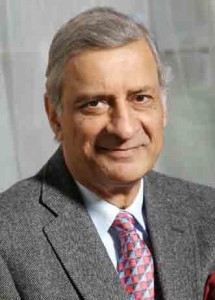
I recently had the pleasure of taking part in the Commonwealth Science Conference. It brought together an outstanding array of scientific talent. As the first Commonwealth conference on science for almost 50 years, this gathering opens a promising new chapter of co-operation between our member states in vital areas of research, discovery and development for a new generation. The objectives were to celebrate excellence in Commonwealth science; to provide opportunities for co-operation between researchers in different Commonwealth countries; to inspire young scientists; and to build scientific capacity in the developing nations within the Commonwealth.
The conference, hosted by the Jawaharlal Nehru Centre for Advanced Scientific Research in Bangalore, was the welcome initiative of the Royal Society, the scientific academy of the Commonwealth, in partnership with the Department of Science and Technology of the Government of India, and the Indian Institute of Science. Among the many distinguished participants were scientists of great eminence and achievement in their respective disciplines. Proceedings were given added vigour by the contributions of talented young scientists from all regions of the Commonwealth.
The conference theme, ‘Science for the Common Good’, echoed deeply all that the Commonwealth seeks to advance. Within the rich variety of our 53 member states and their people in Africa, Asia, the Caribbean, the Americas, the Pacific and Europe, our collective approach is always to pursue inclusiveness and to encourage innovation. Scientific progress and the public understanding of science have a direct bearing on many of our Commonwealth priority concerns – including health, education, employment and adapting to climate change. It helps generate an evidence-based scientific temper. The habit of science advances respect and understanding between people and communities, and serves the goals of both social and economic inclusion.
Resilience to extreme weather was one of many topics considered in Bangalore that have a special relevance for the Commonwealth. Scientific assessments are crucial to decisions on adaptation, risk reduction and building resilience that need to be made at global, national and local levels. At another session some of the Commonwealth’s leading scientists in the domain of global health considered issues relating to public health, including avoidable blindness, diarrhoeal diseases and malaria. These are high priorities for many Commonwealth governments.
Commonwealth co-operation derives much of its strength – in the scientific sphere as in many other areas of collective effort – from networks, whether formal or informal, that thrive independently of official links. The vitality of these ties makes the Commonwealth unique among international groupings in the affinity that exists between its people, and the ease with which they are able to work together. In the Commonwealth Science Conference we again witnessed the will and determination to make more of the immense potential for scientific exchange in the Commonwealth. Exchange and partnership between the research and teaching institutions of our member states is wholly in keeping with our innovative and transformational Commonwealth approach.
Fixing the Science Conference as a regular feature in the cycle of Commonwealth meetings will do much to advance this. Online connection and practical collaboration between meetings will also be critical to maintaining momentum and multiplying contacts. The Commonwealth Connects web platform is now available for this. The influence of science can also be carried forward to other meetings in our regular pattern, such as the annual Commonwealth Health Ministers Meeting, triennial Commonwealth Conference of Education Ministers and biennial Commonwealth Heads of Government Meeting.
I feel sure that in years to come we will look back on Bangalore as a pioneering Commonwealth Science Conference, and as a point of inflection for the way in which the Commonwealth, collectively, is able to derive benefit from the tremendous talent, wisdom and drive of its scientific community.





